Imagine you've stumbled upon an ancient forest, where the ground beneath your feet is a carpet of lush moss, and the air is fragrant with the earthy scent of life. Each tree is a guardian of nature's secrets, and nestled at their roots, a hidden health ally is thriving quietly: the humble mushroom.
But these are no ordinary mushrooms; they hold within their caps and stems a secret so compelling that it whispers tales of longevity and vitality. Welcome to the world of mushroom beta-glucan, nature's unsung health hero.
This remarkable compound, extracted from the cell walls of our fungi friends, is nothing short of a natural marvel. Mushroom beta-glucans are powerful polysaccharides known for their extraordinary ability to modulate the immune system.
In the realm of wellness, where each of us is on a knightly quest for the holy grail of health, mushroom beta-glucan emerges as a trusted steed. Riding on waves of scientific acclaim, it promises a fortress of immunity, a bastion of balance, and the elusive treasure of well-being.
As we delve deeper into the forests of self-development and holistic wellness, let us explore this magical ingredient. How does it weave its protective spells? Can it be the ally you need in your daily battle against stress, illness, and the modern-day dragons of disease?
Let's step into the enchanting world of mushroom beta-glucan together and discover how this potent polysaccharide can be the cornerstone of your health odyssey.
What on Earth is Mushroom Beta-Glucan?
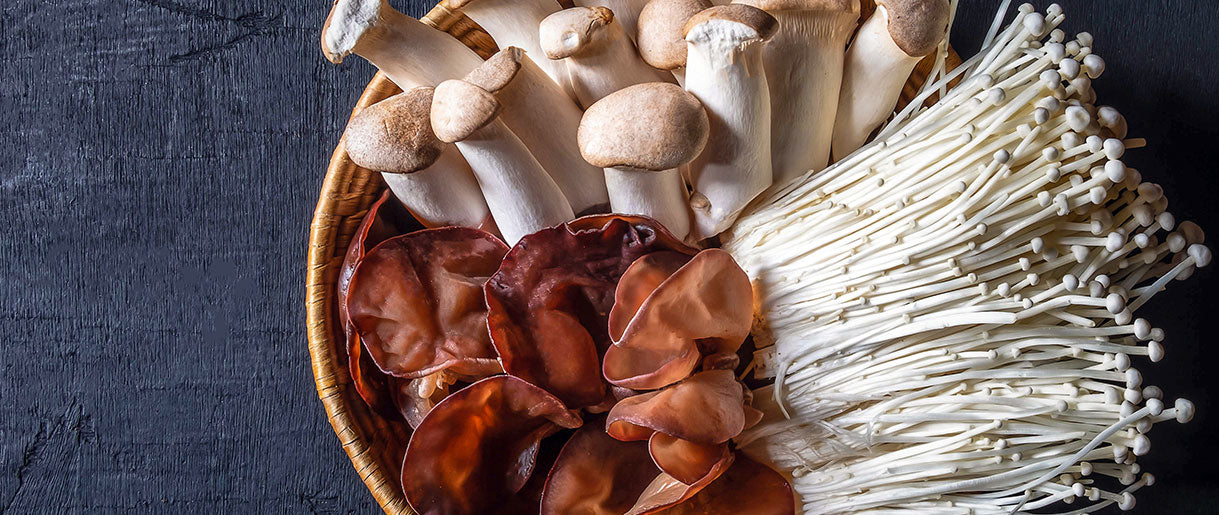
Unveiling Nature's Secret: The Beta Glucan Superpower
Have you ever pondered the hidden components that make certain superfoods so beneficial? Imagine a "superpower" ingredient as vital to your health as a cape is to a superhero. That's what beta-glucans are to edible mushrooms—the unseen force behind their health-boosting prowess.
The Mushroom Matrix: Glucose Molecules and Their Magic
These beta-glucans reside within the cell walls of fungi, forming a complex matrix.
Picture a vast network of glucose molecules, not just thrown together but meticulously constructed by nature's design.
Here, β glucan stands out from its cousin, alpha glucans, as the defender and protector of your body's wellness.
A Forest of Benefits: Shiitake and Beyond
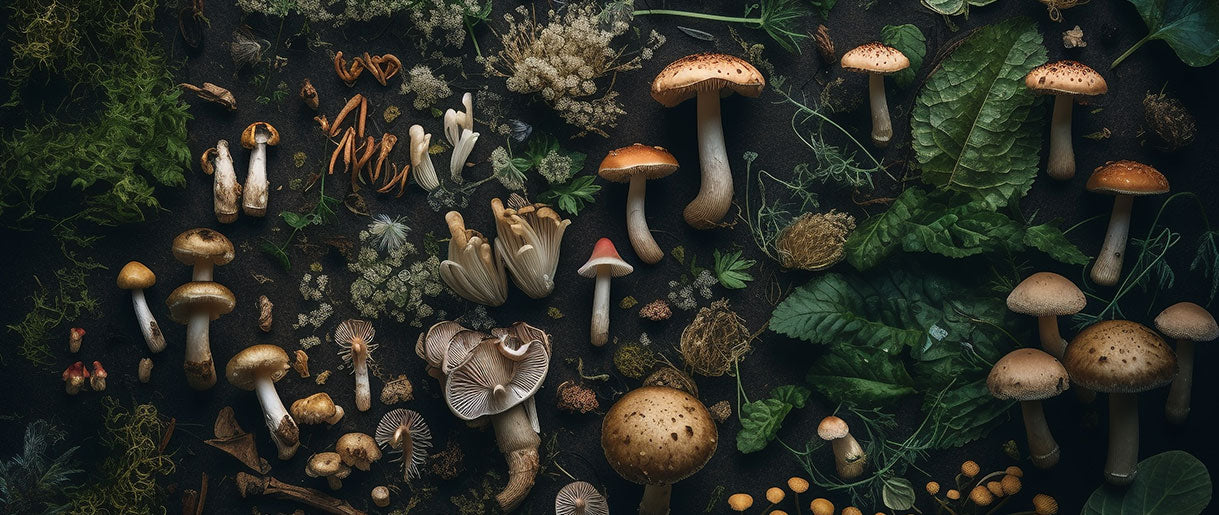
As you meander through a woodland, you might come across shiitake mushrooms. Beyond their culinary appeal, these mushrooms—and others like the revered Reishi mushroom (Ganoderma lucidum)—are rich in biologically active polysaccharides that support your health in multiple ways.
Let's take a stroll through nature's apothecary and spotlight some mushroom species renowned for their rich beta-glucan content:
- Shiitake (Lentinula edodes): Not just a favorite in the kitchen, but a treasure trove of β glucans.
- Reishi (Ganoderma lucidum): Also known as the 'mushroom of immortality,' this species is steeped in medicinal lore.
- Maitake (Grifola frondosa): Its name means 'dancing mushroom' in Japanese, and your immune cells might just do a little jig in response to its β glucan levels.
- Turkey Tail (Trametes versicolor): This mushroom's fan-like appearance conceals its status as a beta-glucan heavyweight.
- Oyster Mushroom (Pleurotus ostreatus): A delicious source of β glucans, oyster mushrooms are as beneficial as they are common.
Mushroom Beta Glucans: Tiny Guardians of Your Immune System
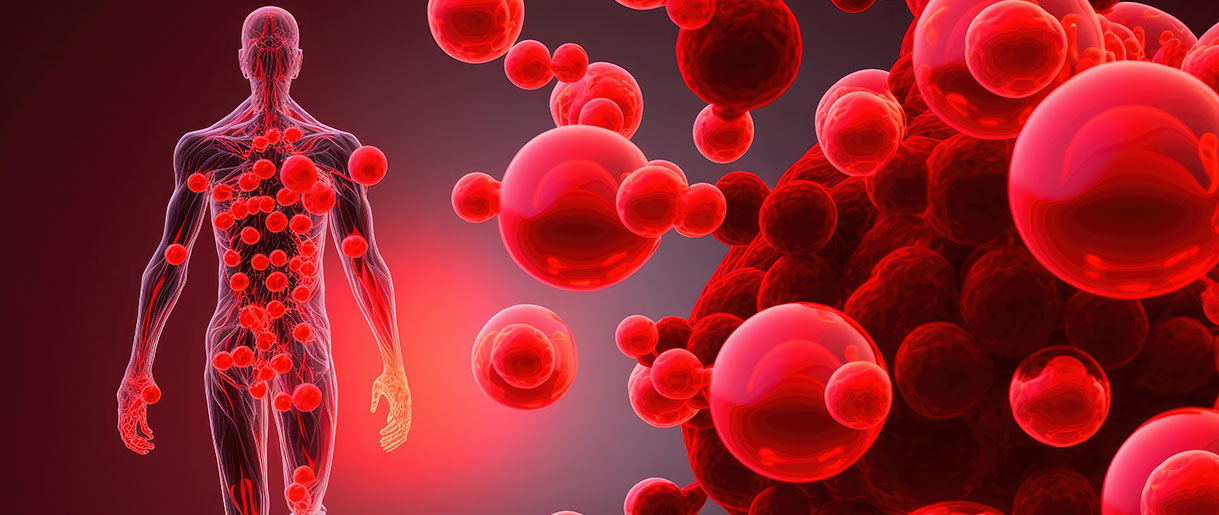
It's in the unique structure of mushroom β glucans that their true power lies.
When they connect with the beta-glucan receptor on immune cells, they act as a clarion call to bolster your immune defenses (1).
The variety of fungal β glucans, with their health benefits, sets medicinal mushrooms for immunity apart.
From Forest to Pharmacy: The Potency of Mushroom β Glucan Extracts

Not all mushrooms boast the same beta-glucan content. The potent β glucan extracts from medicinal mushrooms like Ganoderma lucidum showcase a remarkable spectrum of health benefits, intertwining ancient wisdom with modern scientific discovery.
The Immunity Champion in Your Corner
Packing a Punch Against Pathogens: Beta-Glucan's Immune Boosting Saga
Imagine your immune system as a heavyweight boxer in the ring; beta-glans are the legendary coach. Every day is a new bout with opponents like tumor cells and pesky pathogens.
Mushroom glucans step into the ring as your cornerman, whispering strategies to ramp up your immune response—they're the Mickey to your Rocky, conferring the benefits of medicinal mushrooms to your defense system.
The Knockout Power Against Tumor Cells and Infections
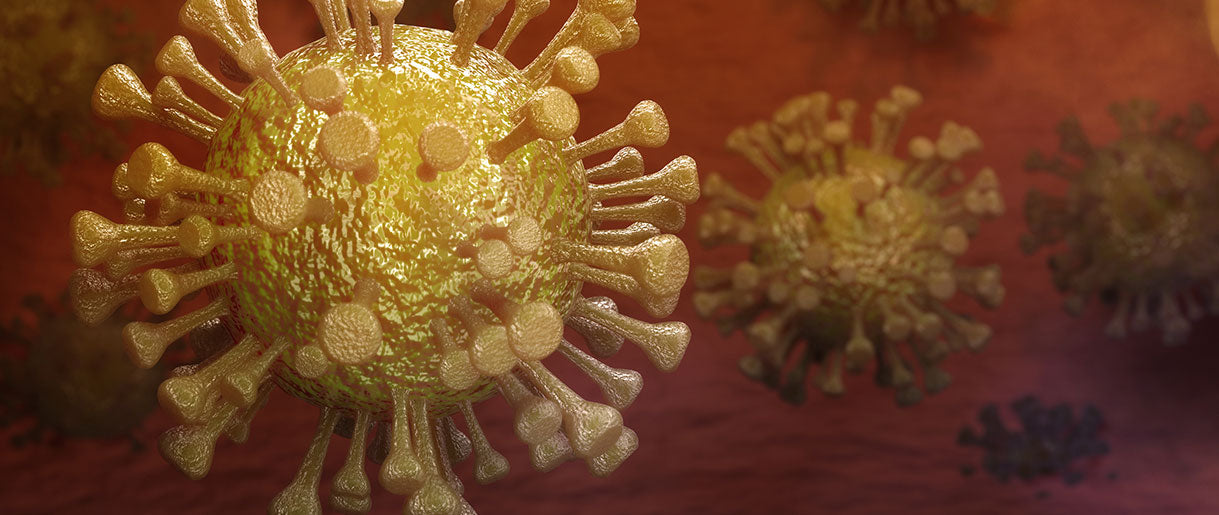
What's particularly fascinating is how these natural biological response modifiers work. Picture this: beta glucans derived from fungal cell walls and yeast beta glucans don't just give a pep talk to the body's innate immune system; they actually help train it. They're like the coach who doesn't just yell from the sidelines but gets down and does the push-ups with you.
Studies have shown that (2) fungal beta-glucans can reduce tumor growth and even make cancer cells sweat, considering calling it quits.
Imagine these glucans tagging in white blood cells to the ring to land some well-placed jabs at cancer cells (3). It's not a knockout every time, but it's always a fair fight, with the best mushrooms for cancer bringing in as much beta-glucans as possible to the fight.
Clearing the Air: Breathe Easy with Beta Glucan

Now, let's chat about those recurrent respiratory tract infections. You know, the kind that seem to hang around like unwanted guests at an after-party.
Fungal beta-glucans have been shown(4) to boost the immune responses in the battleground that is our respiratory system.
People with respiratory tract infections have found a tag-team partner in beta-glucans, helping them clear the air for immune system activation (5).
Beyond Defense: Beta Glucans for Gut Health and More

And it's not just about defense. Beta-glucans are also great for your gut health (6), the often-overlooked hero of your overall well-being.
They work with the innate immune response and are believed to improve gut flora, which is like throwing a block party for your innate immune system. When we talk about mushrooms for gut health, one of the qualifying factors is high beta-glucan content.
So, while they may not have the glitz and glam of other health supplements, fungal beta-glucans are the unsung heroes, quietly ensuring that your immune system is ready to rumble at a moment's notice. Now, who wouldn't want this champion in their corner?
Beyond Immunity - The Full Spectrum of Benefits
The Sugar Tamer: Balancing Acts of Beta Glucans
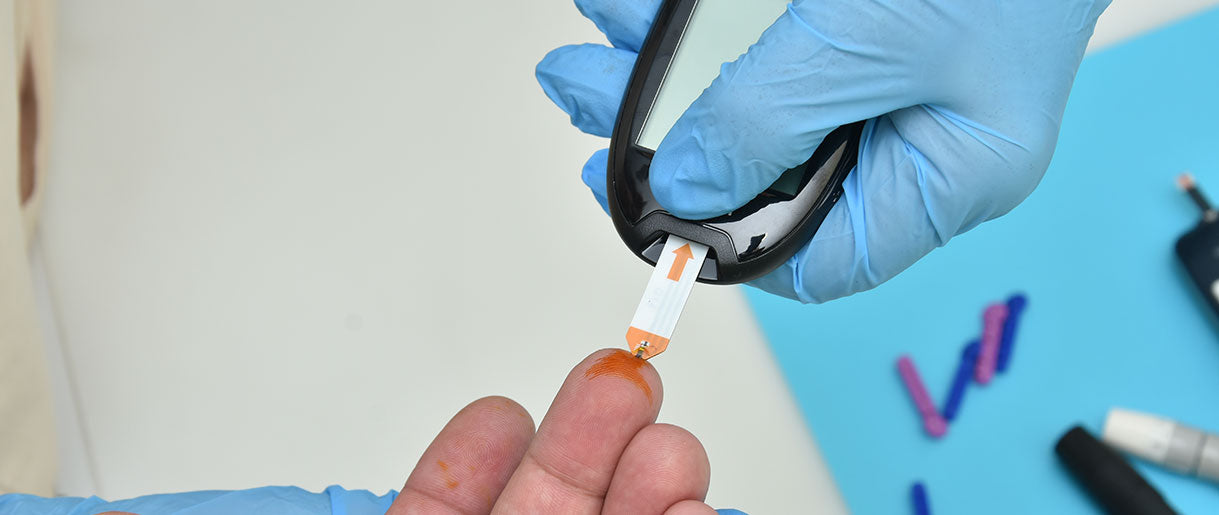
First up in the world of wonders beyond immunity, let's talk sugar—blood sugar, to be precise. The same edible shiitake mushroom you love to toss in your stir-fry has a secret: it's adept at keeping your sugar levels in check.
Imagine beta-glucans as the adept tightrope walkers in the circus of your bloodstream, carefully balancing the sugar with the grace of a seasoned performer. Research (7) indicates that the best mushrooms for diabetes often leverage beta-glucans to keep blood sugar levels in check.
Cholesterol's Natural Nemesis: The Lipid Lowerer
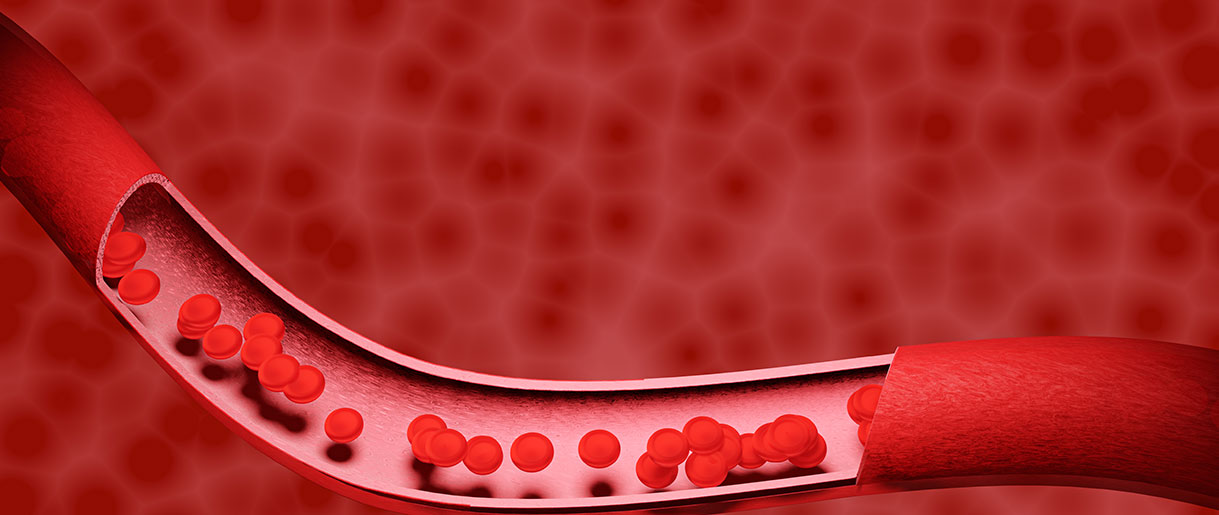
Then there's cholesterol management, where beta glucans don the cape of a cholesterol(8)crusader.
Picture these molecules like tiny superheroes, zooming through your arteries, sweeping up excess cholesterol like miniature street cleaners, ensuring the cityscape of your cardiovascular system stays pristine.
A Gut Feeling: Beta Glucans and Digestive Health

But wait—there's more! Beta-glucans foster the growth of short-chain fatty acids in the gut, much like a gardener nurtures a seedling into a strong tree.
These fatty acids are the unsung heroes in the colonic landscape, maintaining peace and prosperity in the bustling metropolis of your human gastrointestinal tract (9).
The Zen of Mushrooms - Stress Reduction and Mental Clarity
Nature's Antidote to the Noise: Calming the Mind

In the cacophony of daily life, where stress blares like city traffic, mushroom beta-glucans appear as the soothing sound of a countryside retreat. They don't silence the noise; they teach the brain to find peace amid chaos.
Unveiling the Curtain of Fog: Clarity with Beta-Glucans
Ever felt like your mind is clouded, as if a morning fog has settled over your thoughts?
Beta-glucans help lift that veil, not with a gust of wind, but with the gentle reassurance of mental clarity (10). Beta-glucans are one of the reasons Lion's mane brain fog benefits are widely recognized.
They promote a kind of mental agility, helping thoughts leap gracefully from one lily pad of clarity to the next in the pond of your mind.
The Stress Buffer: Beta-Glucans at the Frontlines
Consider stress as a relentless wave crashing against the shore of your sanity.
Beta-glucans reinforce the shoreline, buffering the impact, and preventing erosion of your mental state (11).
They work subtly, like the roots of beach grass holding the sand in place, ensuring the beach—your mind—remains intact and serene.
Cultivating the Garden of Your Mind
Just as a gardener cultivates the soil for optimal growth, beta-glucans nourish the neurological pathways. They're the nutrients for the seeds of thought, helping to sprout ideas and bloom creativity, fostering an environment where mental clarity can flourish.
Mushroom Meditations: A New Kind of Mindfulness

In the practice of mindfulness, one learns to observe without judgment. Beta-glucans aid this process like a gentle guide, leading you to a place of centeredness. With each dose, it's as if you're stepping deeper into a meditative state, where the noise dims and focus sharpens.
The Neuroprotective Ally: Guarding Gray Matter
Beyond the calm and clarity, beta-glucans stand guard like sentinels, offering neuroprotective benefits (12). A crucial part of mushrooms for brain health, beta-glucans watch the neurons, like a castle guard patrols the battlements, ensuring the kingdom of your cognitive realm is safeguarded from the potential siege of oxidative stress and inflammation.
Integrating the Fungus Among Us into Your Daily Ritual
Your Morning Cup of Mighty Mushroom
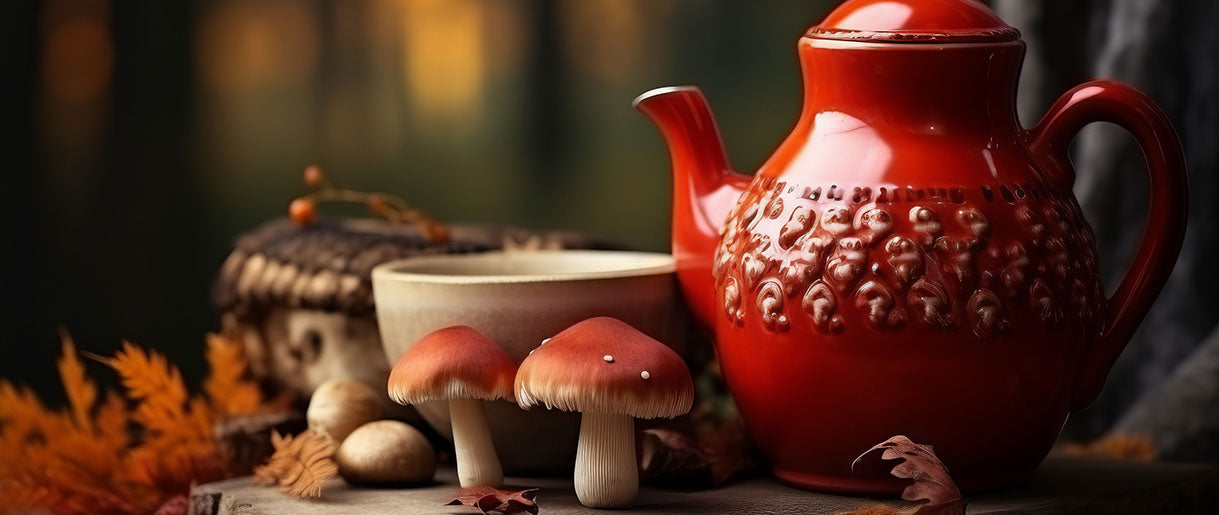
Rise and shine, health warriors! Let's kickstart that engine with a steaming cup of mushroom-infused tea. If you prefer a bit of caffeine, opt for mushroom coffee.
Beta-glucans don't mind how they hitch a ride into your system—whether in your favorite java or a soothing herbal blend containing caffeine-free teas, they're just eager to start defending your well-being.
The Lunchtime Secret Ingredient
Now, who said salads need to be boring? Toss in some edible mushrooms like shiitake or maitake, known for their high beta-glucan content, to not just add a flavor punch but also arm your immune system right in the middle of your day.
Snack Time with a Side of Superpowers
When the mid-afternoon munchies hit, reach for a beta-glucan-rich snack. How about a crunchy granola bar with mushroom extracts or a smoothie blended with a scoop of mushroom powder? You're not just snacking; you're fueling the fortress of your immune system.
The Dinner Delight: Mushrooms Galore
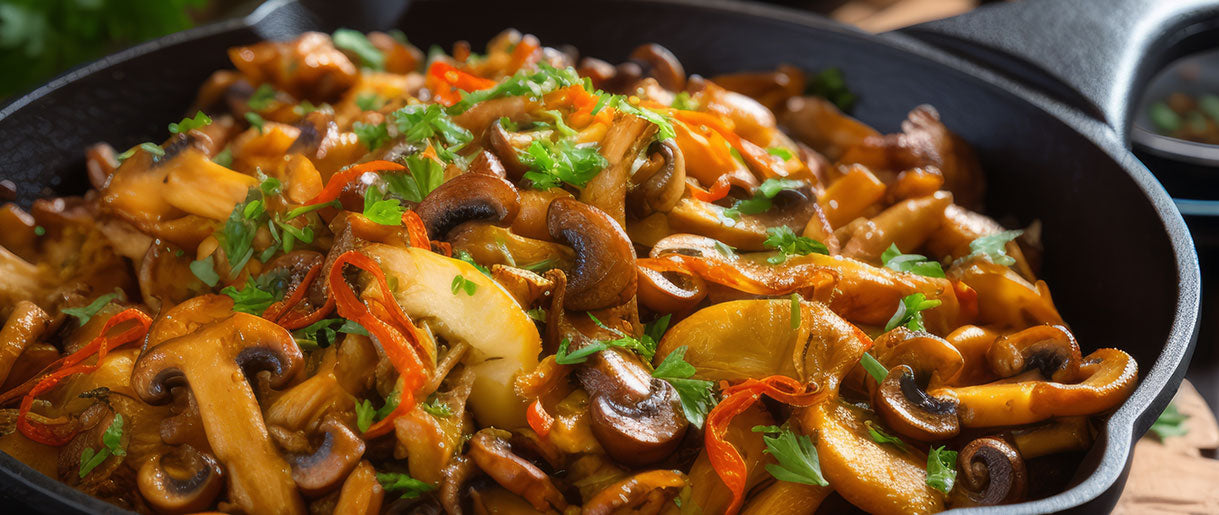
As the sun sets, let's get a little fancy in the kitchen, shall we? Stir-fries, soups, even that spicy curry—let mushrooms take the center stage. You'll be savoring the flavors while your beta-glucans get down to business.
Nighttime Rituals: A Mushroom Nightcap
End your day on a high note with a relaxing mushroom hot chocolate or a golden mushroom milk turmeric latte. As you slip into the realm of dreams, the beta-glans stand guard, keeping your immune soldiers alert.
Beta-Glucan Supplements: Your Wellness Coaches
And for those days when life gets too hectic for a mushroom-centric meal, beta-glucan supplements have got your back. Think of them as your personal wellness coaches, ensuring you're getting your daily dose of health, no fuss, no muss.
FAQs About Mushroom Beta Glucan
Can Mushroom Beta-Glucans Help With Weight Management?
Yes, mushroom beta-glucans can be a valuable ally in weight management. As soluble dietary fibers, they can slow down food digestion, helping you feel full longer, which may reduce overall calorie intake.
Additionally, they assist in balancing blood sugar levels, preventing the spikes and crashes that can lead to cravings and overeating. Incorporating mushrooms or beta-glucan supplements into a balanced diet, alongside regular exercise, can support weight management goals.
Are There Any Side Effects Of Taking Mushroom Beta-Glucans?
Mushroom beta-glucans are generally considered safe and well-tolerated. However, as with any dietary supplement, they can cause side effects in some individuals. The most common side effects are mild digestive issues such as gas, bloating, or diarrhea.
These are typically short-lived as the body adjusts. It's important to consult with a healthcare provider before starting any new supplement, especially for those with pre-existing health conditions or those taking other medications.
How Do Mushroom Beta-Glucans Compare To Other Sources Of Beta-Glucans, Like Oats Or Barley?
While all beta-glucans have beneficial properties, the source of beta-glucan can affect its biological activity. Mushroom beta-glucans, especially from medicinal mushrooms, are highly regarded for their potent immune-modulating effects.
In contrast, beta-glucans from oats and barley are more recognized for their cardiovascular benefits, like reducing cholesterol. The differences lie in their molecular structure, which determines how they interact with immune cells and the body's internal processes.
Key Takeaways
In the lush tapestry of wellness we weave into our lives, mushroom beta-glucans emerge as nature's intricate threads—small yet mighty, seemingly insignificant yet profoundly impactful.
They're not just components of the forest floor but are pivotal elements in the flourishing garden of our health. Through this journey into the heart of mushrooms and their powerful beta-glans, we've uncovered secrets that transcend immunity and touch upon weight management, mental clarity, and so much more.
As we reach the end of our fungal foray, remember that every step toward embracing these natural marvels is a step toward a more vibrant you. Whether stirred into your morning drink, sprinkled atop your lunch, or encapsulated as a silent guardian of your health, mushroom beta-glucans are ready to be your partners in the perpetual dance of life and well-being.
And now, dear reader, as you stand at the crossroads of knowledge and action, we invite you to share your experiences and thoughts. Have you tried mushroom beta-glucans? Noticed a difference? Curious to start?
Leave a comment below and join the conversation that breathes life into our community of wellness enthusiasts. Your insights enrich our collective journey and may be the spore that blossoms into someone else's path to wellness.
References
- Edible Mushrooms and Beta-Glucans: Impact on Human Health, (1), https://www.ncbi.nlm.nih.gov/pmc/articles/PMC8308413/
- Effects of Medicinal Fungi-Derived β-Glucan on Tumor Progression, (2), https://www.ncbi.nlm.nih.gov/pmc/articles/PMC8065548/
- The Effect of Mushroom Beta-Glucans from Solid Culture of Ganoderma lucidum on Inhibition of the Primary Tumor Metastasis, (3), https://www.ncbi.nlm.nih.gov/pmc/articles/PMC3995106/
- Respiratory Tract Infections and the Role of Biologically Active Polysaccharides in Their Management and Prevention, (4), https://www.ncbi.nlm.nih.gov/pmc/articles/PMC5537893/
- Effect of BETA 1, 3/1, 6 GLUCAN on Upper Respiratory Tract Infection Symptoms and Mood State in Marathon Athletes, (5), https://www.ncbi.nlm.nih.gov/pmc/articles/PMC3761532/
- β-glucans: a potential source for maintaining gut microbiota and the immune system, (6), https://www.frontiersin.org/articles/10.3389/fnut.2023.1143682/full
- Beta-glucans in the treatment of diabetes and associated cardiovascular risks, (7), https://www.ncbi.nlm.nih.gov/pmc/articles/PMC2663451/
- β-glucans and cholesterol (Review), (8), https://www.ncbi.nlm.nih.gov/pmc/articles/PMC5810204/
- β-glucans: a potential source for maintaining gut microbiota and the immune system, (9), https://www.ncbi.nlm.nih.gov/pmc/articles/PMC10198134/
- β-glucan attenuates cognitive impairment via the gut-brain axis in diet-induced obese mice, (10), https://microbiomejournal.biomedcentral.com/articles/10.1186/s40168-020-00920-y
- Anti-stress action of several orally-given β-glucans, (11), https://pubmed.ncbi.nlm.nih.gov/21048809/
- β-Glucan attenuates cognitive impairment of APP/PS1 mice via regulating intestinal flora and its metabolites, (12), https://onlinelibrary.wiley.com/doi/full/10.1111/cns.14132




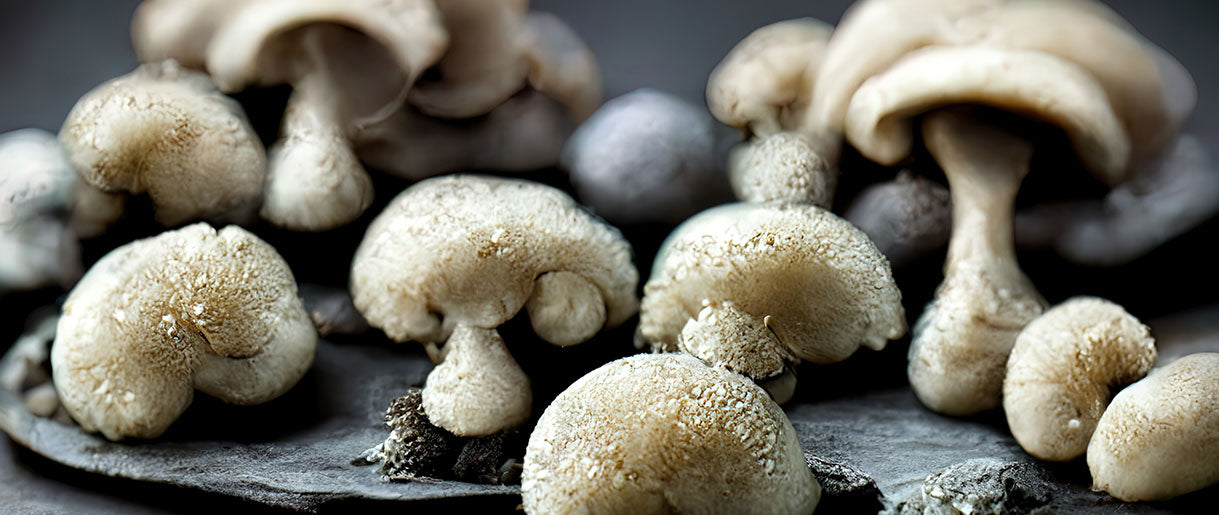

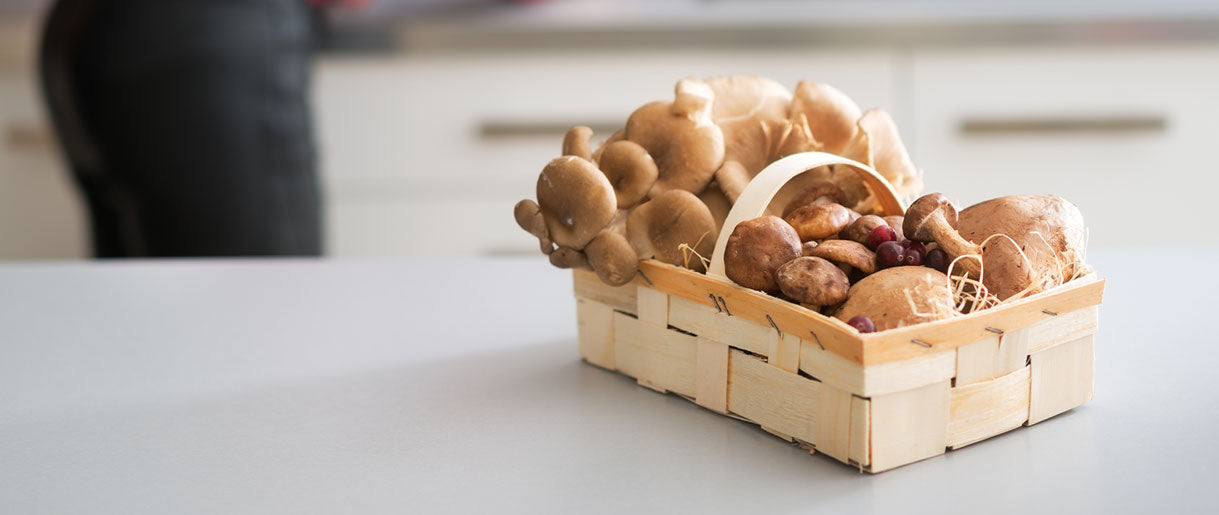
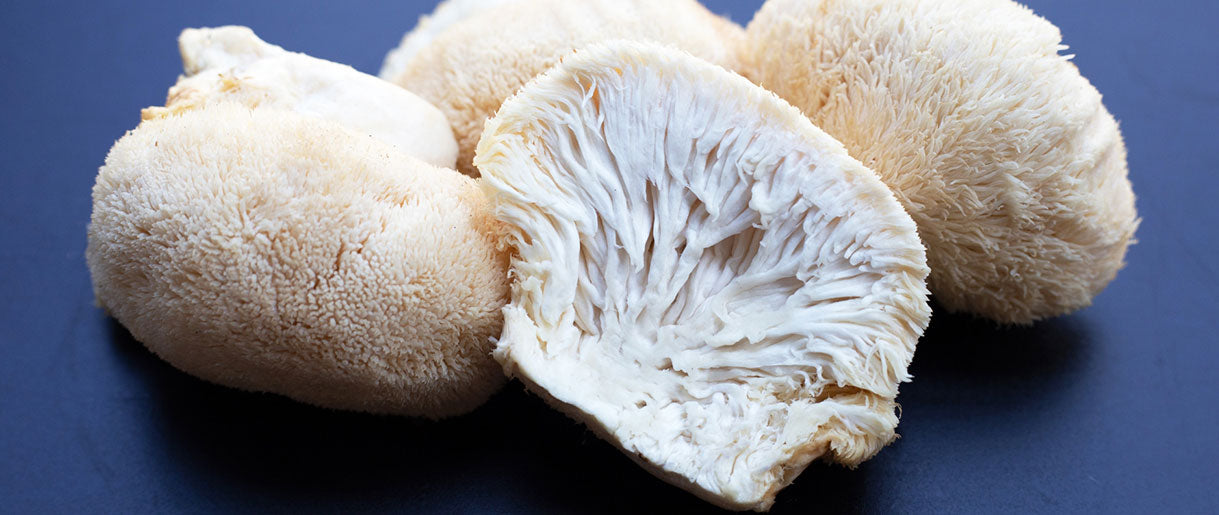
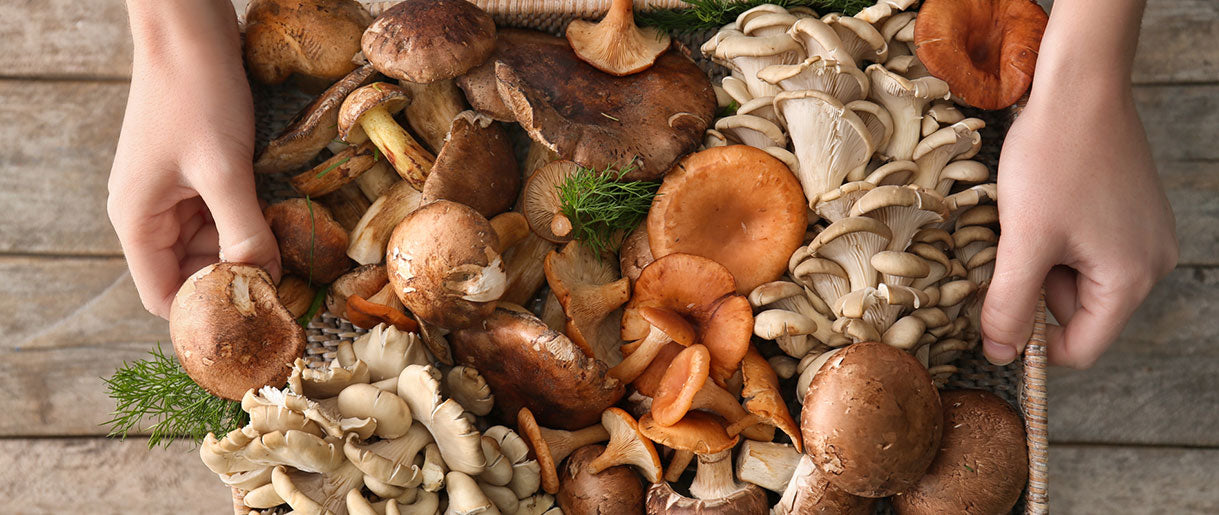
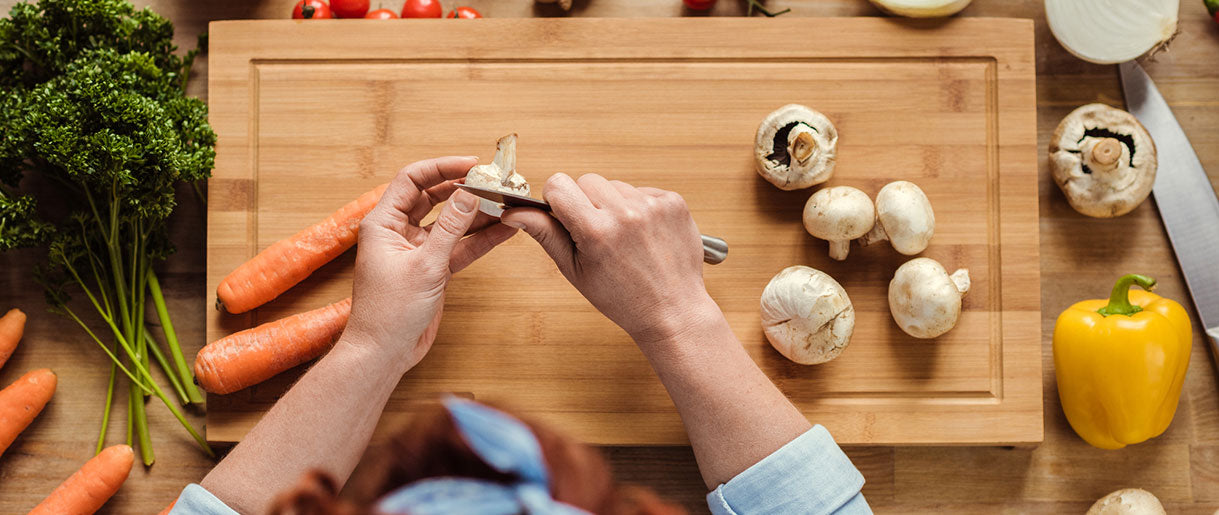
Let Us Know Your Comments